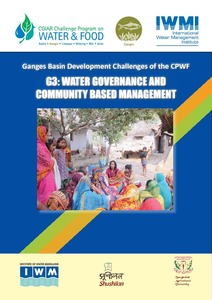Ostrich-like strategies in Sahelian sands?: land and water grabbing in the Office du Niger, Mali.
In recent years, large-scale agricultural investment projects have increased in sub-Saharan Africa as a result of the growing appetites of local and international investors for land resources. Research has so far mainly focused on land issues, but the water implications of these land deals are starting to surface. Taking the Office du Niger (ON), in Mali, as a case study, it is shown that while around 100,000 ha is currently being cultivated, mostly by smallholders, a total of 600,000 ha of land has been allocated in the past ten years to investors in large-scale farming.



